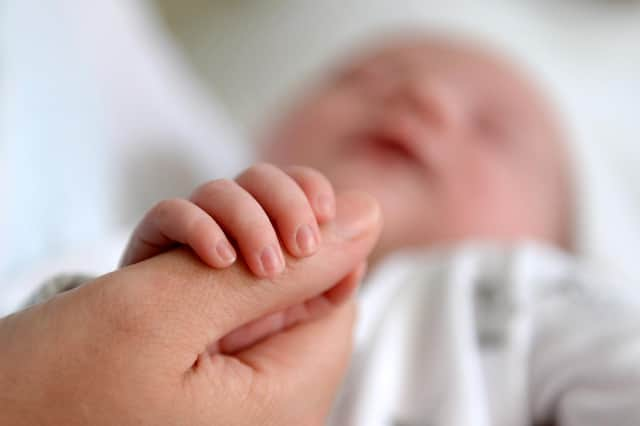Leeds maternity ward rule relaxation a relief for expecting mothers - Zoe Pickburn


Growing up in a very close family, I always pictured my mum being there when my first child was born, so, nearing the end of a tough pregnancy myself, planning to labour and birth without her support never quite felt right. I had a lot of anxiety about labour and birth - but the news that my mother can come into the delivery suite with me and my husband has removed a huge amount of that.
I’m not the only one who felt this way. Most of the hundreds of comments on the Leeds Teaching Hospitals’ eMidwife Facebook post announcing the changes were from pregnant people excitedly tagging their mothers, friends and others who would now be able to attend their birth - or even just visit them on antenatal and postnatal wards.
Advertisement
Hide AdAdvertisement
Hide AdKesh, who is currently 38 weeks pregnant in Leeds, said: “When the rules changed I spoke to my sister as we’re the best of friends. As I expected, she was thrilled at potentially being able to visit the ward after delivery.”


The importance of supportive birth companions is well-documented, but can we really expect one person to fulfil all the roles needed in the delivery suite?
During birth, we need not just physical and practical support, but also emotional support and nurturing, as well as someone to advocate for our wishes.
Alix from The Birth Uprising teaches hypnobirthing - a birth and postnatal preparation method. She told me that the fear many partners feel about birth can bring anxiety in the birth room, potentially causing physical implications for birth, such as a slow or stalled labour.
Advertisement
Hide AdAdvertisement
Hide Ad“Having a second person present who is more relaxed and experienced in birth," she advises, “can provide a sense of calm, fulfil anything that the birth partner is unable to do and offer reassurance.”
Elizabeth Duff, senior policy adviser for the National Childcare Trust, said: “Anyone who is sitting with or dealing with a woman in labour during that time, it’s very emotionally wearing and it can be physically wearing too. While it might be right for the life partner to be the one there most of the time, sometimes it can be good to give him or her a break and get mum in and have a slightly different form of support.”
Alix added: “As it’s so expected that the baby’s other parent is present at the birth, covid restrictions have meant that many pregnant people have found themselves in the awkward position of having to choose their partner to join them when someone else may be better suited.”
For many of us, that ‘someone else’ is our mum, sister, or another family member or friend who has been through the experience before and can offer empathy.
Advertisement
Hide AdAdvertisement
Hide AdHistorically, birth companions would have been other women in the family and, like many first-timers, my own mum is the only person I really know who has been through this exact experience. It’s great that fathers are now more involved than ever in pregnancy and birth, but restricting birth companions to one person - while necessary when COVID was at its peak - has removed an important aspect of our support system, at a very vulnerable time.
When cases were exceptionally high in 2020 and 2021, hospitals had to do everything they could to limit the risk of infection.
“NHS England at the time actually was very supportive of at least one partner being allowed in,” said Ms Duff.
But research from charity and campaigning group Pregnant Then Screwed showed that as recently as 2022, 72 per cent of pregnant women are still finding that hospital restrictions are having a negative impact on their mental health.
Advertisement
Hide AdAdvertisement
Hide AdShanice gave birth in Leeds in 2020, with just her husband. She said: “I wanted my mam there but she wasn’t allowed, it was quite a traumatic birth as well so I think her being there would have been good for me. I think she would have been calming for me, and for my husband, because she’s been through it before, and we didn’t know what to expect, so she could have helped with that, and even taken photos. And sometimes we just want our mams, don’t we, when times are hard?”
My own mum and I had made a plan to FaceTime from the hospital, but if 2020 taught us anything it’s that video calls can’t compare to the real thing.
I feel confident and reassured about giving birth at St James’ in a few weeks - with my mum on my team to witness the birth of her first grandchild.